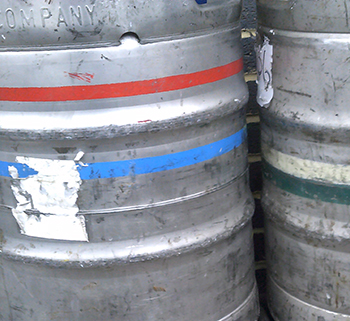This week is Anti-Spiking Intensification Week, coordinated by the National Police Chiefs’ Council (NPCC) Violence Against Women and Girls Taskforce. UK police forces will conducting activities to tackle spiking.
Mark Morgan, a former policeman, is the Licensing SAVI Lead. Licensing SAVI, part of the police company Police Crime Prevention Initiatives (CPI), provides accreditation to licensed premises as a ‘health check’ of operating practices and security measures. The Licensing SAVI (short for Licensing Security and Vulnerability Initiative) self-assessment includes drink spiking in licensed venues and gives advice on reducing risk.
He said: “Spiking is an abhorrent crime and is a complex and challenging offence to investigate as drugs pass through the system quickly and there is often limited evidence to identify offenders. However, with our combined efforts, we can collectively make a real difference against this threat and send a clear message to those intent on perpetrating harm, through a strong and successful intensification week.
“We have been working with the National Police Chiefs’ Council to support venues in tackling spiking and have written good practice guides for licensed venues and customers. Alongside this, we have worked with behavioural scientists from the National Crime Agency to develop offender-focused posters and digital screen displays, targeting those most likely to cause harm and moving away from traditional ‘victim blaming’ campaigns. We’ve also collaborated with the Night Time Industries Association to promote awareness of how staff at licensed premises can support victims and prevent spiking.
“There are simple steps which can be taken to reduce the likelihood of spiking, from venues displaying prominent signage reminding customers not to leave their drinks unattended and not to accept drinks from strangers; training all staff in the danger of drinks being spiked – remember alcohol is the most common form of spiking, so confirm that the person actually drinking wants double measures etc when ordered, encourage staff to monitor unattended drinks; making all staff aware of the types of vulnerability, what they can do to reduce vulnerability and the necessity to provide immediate assistance to any customer feeling dizzy, disorientated or showing signs of intoxication. If anyone is acting suspiciously around unattended drinks, ask them to leave or call the police immediately if spiking is suspected. Venues can also consider providing stopper devices, such as lids to put on drinking vessels, which can reduce the risk of a drink being spiked.
“For customers, if your drink has been spiked, you may not see, smell or taste any difference, albeit some drugs may taste slightly salty or smell unusual. If you start to feel strange or feel that your drink has had more of an effect on you than it should have, get help immediately. Try to avoid drinking too much alcohol, particularly when in unfamiliar surroundings as you could make risky decisions and become less aware of potential danger. Never leave your drink unattended and keep an eye on your friends’ drinks. Be careful about accepting a drink from someone you don’t know. Think about drinking bottled drinks and avoiding shared drinks. Please don’t provide personal details, especially your address, to someone you’ve just met. You should plan your nights out and travel arrangements, using only recognised travel routes and providers.
“If you think your drink has been tampered with, don’t drink it – tell a trusted friend, relative, medic, police or someone you completely trust immediately. If alone, call someone you trust and get to a safe place. If you need urgent help, call 999. Be wary of accepting help from a stranger and don’t leave with someone you don’t know. If you feel unwell, someone you trust should take you to your nearest A & E department and tell the medical staff that you think you’ve been spiked, being sure to arrange for a trusted friend or relative to then take you home and if necessary, stay with you until any drugs have fully left your system.”
Visit: https://www.licensingsavi.com/.










